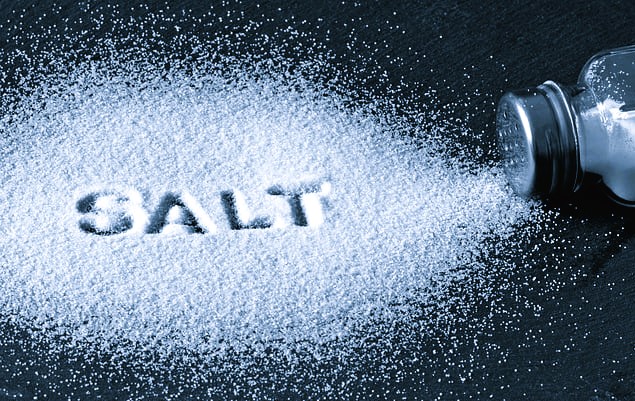Sodium: Role and Clinical Percentages
Learn about the importance of sodium in the human body, including its role and clinical significance. Explore the clinical percentages and impact on overall health.
HEALTH


What is Sodium and Its Biological Significance
Sodium is a vital mineral and electrolyte naturally present in the human body. Chemically represented by the symbol Na, it is an alkali metal located in Group 1 of the periodic table. Sodium possesses unique properties, such as high reactivity and the ability to form various compounds, which contribute to its critical biological roles. It is predominantly sourced from dietary intake, with common sources including table salt (sodium chloride), processed foods, vegetables, and dairy products.
Biologically, sodium is indispensable for numerous physiological functions. One of its primary roles involves the regulation of blood pressure. Sodium works in conjunction with potassium to manage the fluid balance within our cells and blood. This regulation is vital for maintaining blood pressure within healthy ranges, thereby playing a key part in cardiovascular health.
The significance of sodium extends to nerve function, where it is essential for the generation and transmission of electrical impulses. Nerve cells, or neurons, rely on the sodium-potassium pump—a mechanism driven by sodium concentration gradients—to propagate nerve signals. Proper nerve function is crucial for all bodily activities, including sensory perception and motor control.
Additionally, sodium is critical for muscle contraction. It enables muscle cells to contract in response to nerve stimulation, facilitating motion and coordination. This process is vital not only for voluntary movements but also for involuntary functions such as heartbeats and gastrointestinal activity.
Importantly, sodium's regulation of fluid balance aids in maintaining cellular homeostasis. By controlling the amount of water in and around cells, sodium ensures the correct function of cellular processes and overall fluid equilibrium. This balance is essential for nutrient transport, waste removal, and maintaining cellular integrity and function.
Overall, sodium's multifaceted roles underscore its biological significance. From the regulation of blood pressure and nerve function to muscle contraction and fluid balance, sodium is central to sustaining health and homeostasis in the human body.
Clinical Percentages of Sodium in the Human Body
Sodium is integral to numerous physiological functions, and its clinical assessment is typically quantified as serum sodium concentration. In a healthy individual, the normal serum sodium range is generally maintained between 135 and 145 milliequivalents per liter (mEq/L). This range is crucial as it reflects the delicate balance necessary for various bodily processes, including nerve function, muscle contraction, and fluid balance.
The measurement of sodium levels is commonly conducted through blood tests, where a sample is taken and analyzed to determine the serum sodium concentration. The results of this test can offer significant insight into a person's overall health. If the sodium levels are within the normal range, it usually indicates a balanced state of hydration and sodium homeostasis. Conversely, deviations from this range might signal underlying health issues that require further investigation.
Maintaining sodium levels within the optimal range is essential for health. Hypernatremia, characterized by serum sodium levels exceeding 145 mEq/L, can lead to symptoms such as confusion, muscle twitching, and even seizures in severe cases. This condition often arises from dehydration or excessive sodium intake, necessitating appropriate medical intervention to rebalance electrolyte levels. On the other hand, hyponatremia, where serum sodium drops below 135 mEq/L, can result in nausea, headaches, and in extreme instances, brain swelling and coma. Hyponatremia is frequently associated with overconsumption of fluids, certain medications, or underlying health conditions such as kidney dysfunction.
Thus, regular monitoring of serum sodium concentration is vital, especially for individuals with conditions that predispose them to imbalances. Addressing sodium level aberrations promptly can mitigate potential complications, underscoring the importance of this clinical parameter in maintaining optimal health.
Factors Affecting Sodium Levels and How to Maintain Balance
Sodium plays a critical role in maintaining various bodily functions, including nerve transmission, muscle contraction, and fluid balance. Numerous factors can influence sodium levels in the body, each contributing uniquely to either retention or depletion. Understanding these factors is paramount for maintaining optimal health.
Diet is a primary factor affecting sodium levels. High intake of sodium-rich foods, commonly found in processed and fast foods, can lead to elevated sodium levels, potentially causing hypertension and other cardiovascular issues. Conversely, low dietary sodium intake might impair muscle function and lead to hyponatremia, a condition characterized by excessively low sodium levels.
Hydration status is another essential factor. Adequate water intake helps regulate sodium concentration in the blood. Dehydration, on the other hand, can lead to increased sodium levels as water loss concentrates sodium content. Proper hydration, therefore, aids in maintaining a balance.
Kidney function is crucial in sodium regulation. The kidneys filter excess sodium to be excreted in the urine. Any disorders that impact renal function, such as chronic kidney disease, can hinder this process, leading to abnormal sodium retention or loss.
Hormonal imbalances also significantly affect sodium levels. Hormones like aldosterone and antidiuretic hormone (ADH) regulate sodium and fluid balance. Conditions that alter hormonal levels, including Addison’s disease and syndrome of inappropriate antidiuretic hormone (SIADH), can disrupt sodium balance, leading to hypo- or hypernatremia.
Some medical conditions, including heart failure, liver cirrhosis, and certain medications, can affect how the body manages sodium. These conditions might necessitate careful monitoring and adjustments in sodium intake.
Strategies for maintaining healthy sodium levels include dietary recommendations, such as consuming a balanced diet rich in fruits, vegetables, and whole grains while limiting processed and high-salt foods. Reading and understanding food labels can also help manage sodium intake effectively. Recognizing symptoms of imbalance, like swelling, confusion, or muscle cramps, is vital for early intervention.
Lifestyle changes like staying adequately hydrated and engaging in regular physical activity can support sodium balance. In some cases, medical interventions, such as prescribed medications or treatment for underlying conditions, might be necessary to manage sodium levels effectively. Consult healthcare providers for personalized advice tailored to individual health needs.
